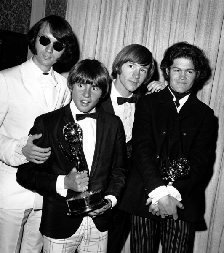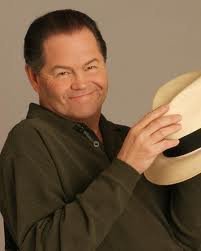Duck is the common name for numerous species of waterfowl in the family Anatidae. Ducks are generally smaller and shorter-necked than swans and geese, which are members of the same family. Divided among several subfamilies, they are a form taxon; they do not represent a monophyletic group (the group of all descendants of a single common ancestral species), since swans and geese are not considered ducks. Ducks are mostly aquatic birds, and may be found in both fresh water and sea water.
Ducks are sometimes confused with several types of unrelated water birds with similar forms, such as loons or divers, grebes, gallinules an coots.
Etymology
The word duck comes from Old English dūce 'diver', a derivative of the verb *dūcan 'to duck, bend down low as if to get under something, or dive', because of the way many species in the dabbling duck group feed by upending; compare with Dutch duiken and German tauchen 'to dive'.
Pacific black duck displaying the characteristic upending "duck".
This word replaced Old English ened/ænid 'duck', possibly to avoid confusion with other words, such as ende 'end' with similar forms. Other Germanic languages still have similar words for duck, for example, Dutch eend, German Ente and Norwegian and. The word ened/ænid was inherited from Proto-Indo-European; cf. Latin anas "duck", Lithuanian ántis 'duck', Ancient Greek νῆσσα/νῆττα (nēssa/nētta) 'duck', and Sanskrit ātí 'water bird', among others.
A duckling is a young duck in downy plumage or baby duck, but in the food trade a young domestic duck which has just reached adult size and bulk and its meat is still fully tender, is sometimes labelled as a duckling.
A male is called a drake and the female is called a duck, or in ornithology a hen.
Taxonomy
All ducks belong to the biological order Anseriformes, a group that contains the ducks, geese and swans, as well as the screamers, and the magpie goose. All except the screamers belong to the biological family Anatidae. Within the family, ducks are split into a variety of subfamilies and 'tribes'. The number and composition of these subfamilies and tribes is the cause of considerable disagreement among taxonomists. Some base their decisions on morphological characteristics, others on shared behaviours or genetic studies. The number of suggested subfamilies containing ducks ranges from two to five. The significant level of hybridisation that occurs among wild ducks complicates efforts to tease apart the relationships between various species.
Distribution and habitat
Ducks have a cosmopolitan distribution, and are found on every continent except Antarctica. Several species manage to live on subantarctic islands, including South Georgia and the Auckland Islands. Ducks have reached a number of isolated oceanic islands, including the Hawaiian Islands, Micronesia and the Galápagos Islands, where they are often vagrants and less often residents. A handful are endemic to such far-flung islands.
Some duck species, mainly those breeding in the temperate and Arctic Northern Hemisphere, are migratory; those in the tropics are generally not. Some ducks, particularly in Australia where rainfall is erratic, are nomadic, seeking out the temporary lakes and pools that form after localized heavy rain.
Communication
Female mallard ducks (as well as several other species in the genus Anas, such as the American and Pacific black ducks, spot-billed duck, northern pintail and common teal) make the classic "quack" sound while males make a similar but raspier sound that is sometimes written as "breeeeze", but, despite widespread misconceptions, most species of duck do not "quack". In general, ducks make a range of calls, including whistles, cooing, yodels and grunts. For example, the scaup – which are diving ducks – make a noise like "scaup" (hence their name). Calls may be loud displaying calls or quieter contact calls.
A common urban legend claims that duck quacks do not echo; however, this has been proven to be false. This myth was first debunked by the Acoustics Research Centre at the University of Salford in 2003 as part of the British Association's Festival of Science. It was also debunked in one of the earlier episodes of the popular Discovery Channel television show MythBusters.
Ducks have many predators. Ducklings are particularly vulnerable, since their inability to fly makes them easy prey not only for predatory birds but also for large fish like pike, crocodilians, predatory testudines such as the alligator snapping turtle, and other aquatic hunters, including fish-eating birds such as herons. Ducks' nests are raided by land-based predators, and brooding females may be caught unaware on the nest by mammals, such as foxes, or large birds, such as hawks or owls.
Adult ducks are fast fliers, but may be caught on the water by large aquatic predators including big fish such as the North American muskie and the European pike. In flight, ducks are safe from all but a few predators such as humans and the peregrine falcon, which uses its speed and strength to catch ducks.
If you want to read a lot more, go here: https://en.wikipedia.org/wiki/Duck
- SERVES
- 5
- COOK TIME
- 30 Min
We're taking you back to your cafeteria eatin' days with our recipe for Sloppy Joe Biscuit Bake. This easy casserole has so much old-fashioned taste, you're gonna be using the biscuits to soak up every last meaty and flavorful bite. Yum!
- 1 1/2 pound ground beef
- 1/2 cup chopped onion
- 1/2 green bell pepper, chopped
- 2 (8-ounce) cans tomato sauce
- 2 teaspoons Worcestershire sauce
- 2 teaspoons apple cider vinegar
- 1/4 cup light brown sugar
- 1 teaspoon yellow mustard
- 1/2 teaspoon garlic powder
- 1/2 teaspoon salt
- 1/4 teaspoon black pepper
- 1 cup pancake and baking mix
- 1/3 cup milk
- Preheat oven to 450º. Coat a 3-quart casserole dish with cooking spray.
- In a large skillet over medium heat, cook ground beef, onion, and bell pepper 8 to 10 minutes, or until no longer pink. Drain off excess fat. Add tomato sauce, Worcestershire sauce, vinegar, brown sugar, mustard, garlic powder, salt, and pepper. Cook 5 to 6 minutes, or until heated through. Pour into casserole dish and set aside.
- In a small bowl, stir together baking mix and milk. Dollop 5 equal spoonfuls of batter onto meat mixture.
- Bake 13 to 15 minutes, or until biscuits are golden brown and firm in center.

1959 – Lester Holt, American television journalist
On March 8t, National Oregon Day recognizes the Beaver State. Valentine’s Day 1859, Oregon became the 33rd state to join the Union.
Oregon’s climate enjoys the warm Pacific air west of the Cascade Mountains and in the lush Willamette Valley. More extreme temperature ranges are experienced in Oregon’s high desert.
Populations of Nez Perce, Chinook, Mollalla, and others settled along the Columbia River Gorge, Klamath Basin, and points east. Many of the first European explorers to arrive sought the elusive Northwest Passage
The Corps of Discovery Expedition followed the Colombia River Gorge, reaching the Pacific Ocean in November of 1805. They would winter at Ft. Clatsop. Soon, pioneers would follow along what would become the Oregon Trail.
The gorge was created from volcanic lava flows and glacial floods. Windsurfers flock to the Columbia due to the powerful, steady winds off of the Cascade Mountains. Kayaking, biking, hiking, skiing and many other outdoor adventures can be found up and down the Gorge, but its icy crown is Mt. Hood. The Stratovolcano’s last eruption occurred in 1865 and was named after Lord Samuel Hood.
South along the Cascade Range, a sleeping volcano forms the mysterious Crater Lake. A well-planned hike along the trails to the remote brilliant, blue waters of the deepest lake in the U.S. is worth the effort. The pristine volcano is a wonder to see. Eastern Oregon takes on the color of a sunset in the undulating Painted Hills near Mitchell.
HOW TO OBSERVE
Explore all the wonders of Oregon!












No comments:
Post a Comment